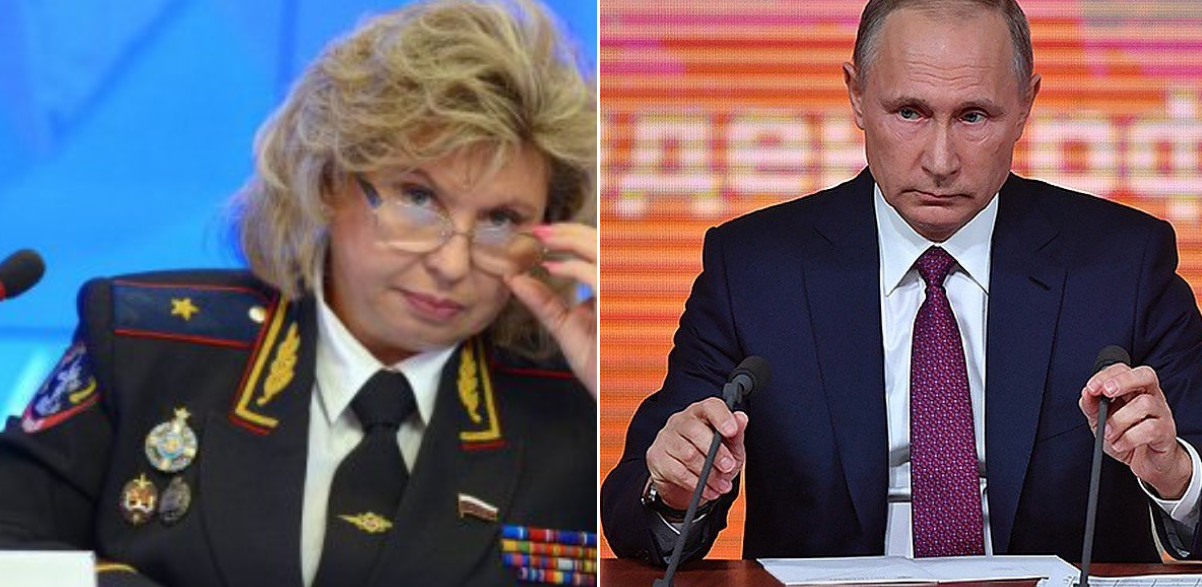Russian Ombudsperson claims “public demand” for law jailing for ‘disrespect of authorities’ on Internet
 With Russians ever more openly expressing disapproval of both Russian President Vladimir Putin and the ruling ‘United Russia’ party, the regime is increasingly looking for ways to curb Internet freedom, or even to isolate the Russian Internet from providers in another countries altogether. At least one of the recent legislative initiatives, which could jail for expressing ‘open disrespect of the authorities’ on the Internet, has received public approval from Putin and been described as in response to ‘public demand’ by Russia’s Human Rights Ombudsperson.
With Russians ever more openly expressing disapproval of both Russian President Vladimir Putin and the ruling ‘United Russia’ party, the regime is increasingly looking for ways to curb Internet freedom, or even to isolate the Russian Internet from providers in another countries altogether. At least one of the recent legislative initiatives, which could jail for expressing ‘open disrespect of the authorities’ on the Internet, has received public approval from Putin and been described as in response to ‘public demand’ by Russia’s Human Rights Ombudsperson.
Two draft bills were tabled in the State Duma on 12 December by Duma Deputy Dmitry Vyatkin and senators Andrea Klishas and Lyudmila Bokova, all of whom are from ‘United Russia’. The first would impose fines for circulating ‘fake news’ in the media and Internet, with the bill speaking of “knowingly false publicly important information, which poses a threat to life and / or the health of citizens and mass infringement of public order”.
The grounds for designating, for example, information about the opulent lifestyle of people in power and official corruption are likely to be official denials which are virtually never based on real investigations. It can be anticipated that this will be used to prevent circulation, especially in the social media, of information inconvenient to the authorities, especially the kind of reports that have fuelled the anti-corruption protests over the last year.
The second draft law proposes amendments to the Code of Administrative Offences, imposing fines or up to 15 days’ imprisonment for what is called “circulating information in information networks that expresses in indecent form clear disrespect for society, the state and official state symbols of the Russian Federation the Russian Constitution and bodies carrying out state power”
In their explanatory note and interviews, the authors claim that they are simply extending to the Internet the liability which currently exists for showing “clear disrespect of society in public places or denigrating state symbols” (‘minor hooliganism’). .
Russia already has an article of the criminal code prohibiting “insulting a representative of the authorities’, and Vyatkin says that the new law would cover what does not fall under such criminal liability. He asserts that it is the ‘indecent form’ that is targeted, not the ‘disrespect’.
In occupied Crimea, there have already been prosecutions of Crimean Tatars on spurious charges of ‘insulting a police officer’, and it is easy to envisage abuse of an administrative norm with elastic and undefined terms like ‘indecent form’ and ‘disrespect to the state and authorities’.
The bill also facilitates direct censorship since the Prosecutor General’s Office, having detected such ‘disrespect expressed in indecent form’, would be able to turn to Roskomnadzor, Russia’s effective censor,, and get the resource blocked until the ‘offending’ material was removed. The bill would also add an amendment to the Law on Information prohibiting access to Internet pages with such ‘disrespect’.
In his annual televised press conference on 20 December, Putin expressed approval for the bill proposing arrest for Internet expressions “of overt disrespect for the state”.
He claimed that in virtually all countries “it’s necessary to treat your country with respect” and that, if there are rules of behaviour elsewhere, there should also be liability for such behaviour on the Internet.
He did not specify which countries he was referring to which is regrettable since it would be hard to find democratic countries which imprison people for 15 days for making derogatory remarks about representatives of the authorities, even if their language is questionable.
Russia’s Human Rights Ombudsperson, Former Police Major General Tatyana Moskalkova, has also indicated support for the ‘disrespect’ bill. She asserts that “there is demand among the public for punishment for insulting the authorities”, though did stress that it must be formulated carefully so that “innocent people” do not suffer.





